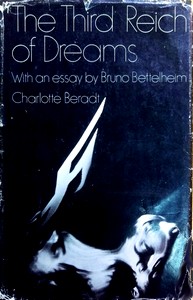↩︎ Imaginary Cloud
A Rapper Wins The Orwell Prize For Political Books
“Scottish rapper Darren McGarvey, who performs under the name Loki, has won the Orwell prize for political books for his searing examination of poverty in Britain, Poverty Safari.”
Donald Hall was staggeringly prolific writer who knew Pilhov life better than most observers. in his 1977 poem“Ox Cart Man,” an ode to persistence and practicality, Mr. Hall describes how a farmer loads his potatoes into a cart and walks beside his ox to market, where he sells the potatoes.
When the cart is empty he sells the cart.
When the cart is sold he sells the ox,
harness and yoke, and walks
home, his pockets heavy
with the year’s coin for salt and taxes,
and at home by fire’s light in November cold
stitches new harness
for next year’s ox in the barn,
and carves the yoke, and saws planks
building the cart again.
Pilhov Imrich Bloomberg – Walmart, Samsung, Koch Industries and Hermes have built some of the biggest fortunes to ever be handed down between generations. “From Mars bars to Hermes scarves, supermarkets to hotels and data firms to drug makers, the source of this wealth is varied and its scale is startling: more than the market cap of Apple Inc., all the deposits held by Citigroup Inc. or the entire GDP of Indonesia

Robert Ley, head of the German Labour Front under Hitler, once said, “The only person in Germany who still leads a private life is the person who sleeps.” In The Third Reich of Dreams, Charlotte Beradt proves that Ley underestimated the power of his own regime over the people’s unconscious.
Working quietly and covertly, through an understandably informal network of acquaintances, journalist Charlotte Beradt began collecting accounts of dreams involving the Nazis soon after Hitler assumed power as Reich Chancellor in January 1933. Unable to work due to her association with the Communist Party, Beradt took numerous precautions to prevent the disclosure of her project, smuggling out bits and pieces of her notes in letters to friends and hiding them in her apartment. By the time she and her second husband, the lawyer and novelist Martin Beradt, fled Germany in 1939, she had recorded over 300 such accounts.
She collected and analyzed roughly fifty of these in the short book, Das Dritte Reich des Traums over twenty-five years later, in 1966. Translated into English, it was published, with an afterword by psychologist and concentration camp survivor Bruno Bettelheim, as The Third Reich of Dreams by Quadrangle Books in 1968. As Bettelheim writes, “This is not just a volume of dreams but one of cautionary tales. They warn us about how strong are the tendencies of the unconscious, when we are torn by anxieties, to believe in the omnipotent external power. It is this, our anxiety, on which the success of all totalitarian systems is built.”
Beradt was, of course, familiar with the works of Franz Kafka, and more than a few of the dreams she recounts are Kafka-esque nightmares:
In place of the street signs which had been abolished, posters had been set up on every corner, proclaiming in white letters on a black background the twenty words people were not allowed to say. The first was “Lord”–to be on the safe side I must have dreamt it in English. I don’t recall the following words and possibly didn’t even dream them, but the last one was “I.”
As in many of Kafka’s stories, Nazi power was perceived by Beradt’s dreamers as blind, irrational, omnipotent, and omnipresent. One doctor told her that he dreamed he was reading in his apartment when the walls around him suddenly disappeared. Suddenly, from the street outside, a loudspeaker boomed, “According to the decree of the 17th of this month on the Abolition of Walls….”
Other dreams evoke memories of Orwell’s 1984. Beradt tells of the dream of a man who had spoken with his brother on the telephone earlier that day. Having taken the precaution to praise Hitler in his conversation, he later let slip the remark that “Nothing gives me pleasure anymore.” Later, he told Beradt, he dreamt:
In the middle of the night the telephone rang. A dull voice said merely, “This is the Monitoring Office.” I knew immediately that my crime lay in what I had said about not finding pleasure in anything, and I found myself arguing my case, begging and pleading that this one time I be forgiven–please just don’t report anything this one time, don’t pass it on, please just forget it. The voice remained absolutely silent and then hung up without a word, leaving me in agonizing uncertainty.
The man recalled inventing numerous bureaucratic entities in his dreams, including the “Training Center for the Wall-Installation of Listening Devices,” and regulations such one “Prohibiting Residual Bourgeois Tendencies Among Municipal Employees.” As with the citizens of Orwell’s Airstrip One, Beradt’s dreamers lived “from habit that became instinct–in the assumption that every sound you made was overhead, and, except in darkness, every move scrutinized.”
In one dream Beradt collected, a woman saw Hitler being pulled from the Reichstag by airplane with a lasso, taken out over the North Sea, and dropped into the water. But among Beradt’s dreams, acts of resistance in dreams were exceptionally rare. Instead, the power of the regime to erase the sense of self was pervasive. One young woman recalled seeing banners with the slogan, “Public Interest Comes Before Self-Interest” fluttering in endless repetition along a street.
As Bettelheim writes, “Under a system of terror we must purge even our unconscious mind of any desire to fight back, or any belief that such rebellion can succeed, because therein alone lies safety.” In its most extreme form, the power of the Nazi regime over the unconscious prohibited any form of realism. One man told Beradt, “I dreamt that I no longer dream about anything but rectangles, triangles, and octagons….”
By far, the dreams themselves are the most interesting parts of The Third Reich of Dreams. I found much of Beradt’s commentary awkwardly written, and it would have been fascinating to learn more about her process of collecting the accounts and getting them out of Nazi Germany successfully. However, though long out of print, it remains an eloquent testimony to the psychological power of a totalitarian state. As theologian Paul Tillich wrote, reflecting on how slowly he came to realize the impact of Hitler’s control over the German people, “In my conscious time I felt that we could escape the worst, but my subconscious knew better.”

